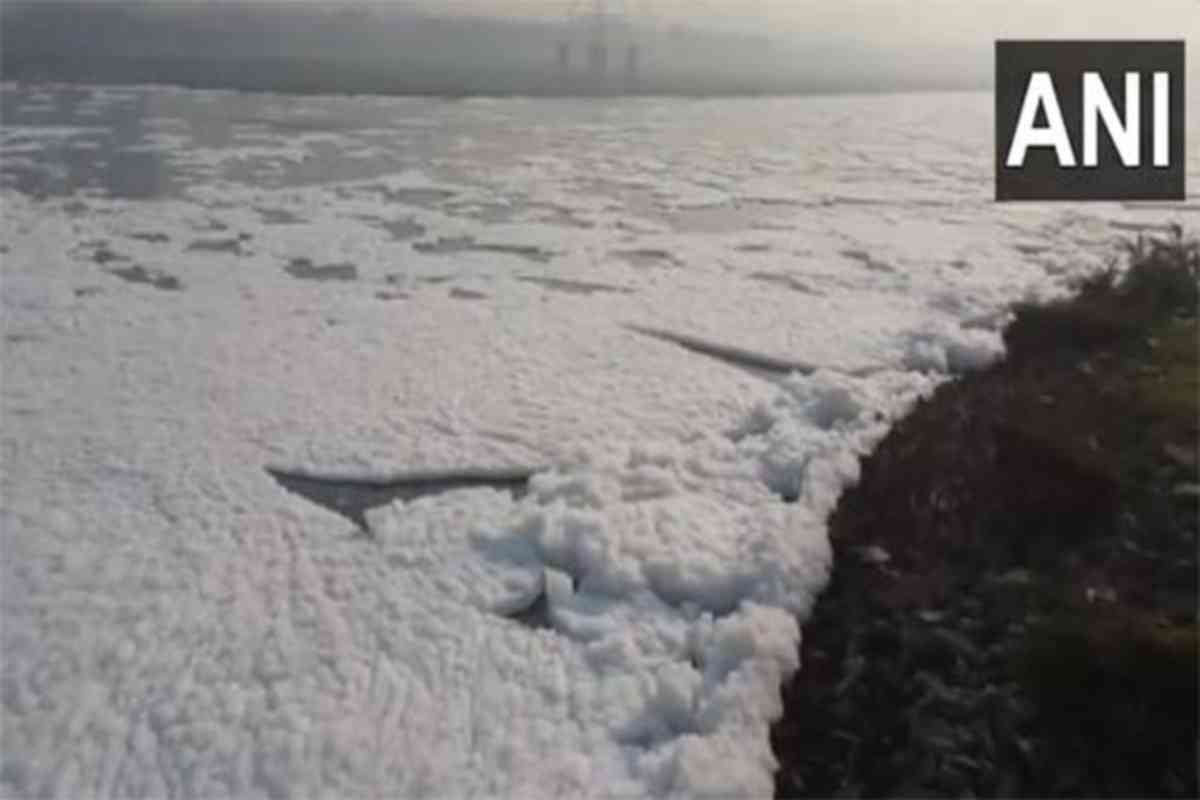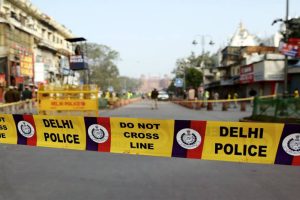The air quality worsened in Delhi on Monday morning and a thick blanket of smog engulfed several parts. The air quality level plunged to ‘severe plus’ levels. According to the Central Pollution Control Board, the Air Quality Index recorded at 7 am was 483 in the national capital.
A toxic foam was seen floating on the Yamuna River in Kalindi Kunj, as residents complained of difficulty in breathing and irritation in the eyes.
A local resident said, “I have been living here for 20 years…This (air pollution) causes burning in the eyes, breathing difficulties, cough and cold. Pollution is very high here. Water is polluted too… We are habituated now. But someone new won’t be able to stay here, they would fall ill immediately.”
Trains’ movement continued amid smog in Delhi.
Delhi International Airport Limited (DIAL) issued a notice, “Low visibility procedures are in progress at Delhi Airport. All flight operations are presently normal. Passengers are requested to contact the airline concerned for updated flight information.”
In Agra, a thick layer of haze engulfed the Taj Mahal amid the rise in air pollution levels. As per the Central Pollution Control Board (CPCB) air quality in Agra remains in the ‘Poor’ category.
Delhi Chief Minister Atishi announced on Sunday that physical classes shall be discontinued for all students, apart from classes 10 and 12. The announcement came shortly after the implementation of GRAP-4 in Delhi-NCR from Monday.
In a post on X, CM Atishi wrote, “With the imposition of GRAP-4 from tmrw, physical classes shall be discontinued for all students, apart from Class 10 and 12. All schools will hold online classes, until further orders”.
Delhi Environment Minister Gopal Rai will hold a meeting with the Heads of Departments of all concerned departments on Monday for the effective implementation of the GRAP IV, his office said in a statement on Sunday.
“Keeping in view the prevailing trend of deteriorating air quality of NCR, and in an effort to prevent further deterioration of air quality in the region, the Sub-Committee today has taken the call to invoke all actions as envisaged under Stage-IV of GRAP – ‘Severe+’ Air Quality (Delhi’s AQI > 450), w.e.f. 08:00 AM of 18.11.2024 (tomorrow) in the entire NCR,” the CAQM said in a statement.
This is in addition to the preventive/ restrictive actions mentioned under Stage I, Stage II and Stage III of GRAP already in force.
The Graded Response Action Plan (GRAP) for the National Capital Region (NCR) is classified under four different stages of adverse air quality in Delhi: Stage I — ‘poor’ (AQI 201-300); Stage II — ‘very poor’ (AQI 301-400); Stage III — ‘severe’ (AQI 401-450); and Stage IV — ‘severe plus’ (AQI >450).
The Stage-IV response encompasses an 8-point action plan designed to mitigate the pollution crisis. Key measures include banning the entry of non-essential truck traffic into Delhi, except for trucks carrying essential commodities or providing essential services.
LNG/CNG/electric and BS-VI diesel trucks will still be permitted. Light commercial vehicles (LCVs) registered outside Delhi will also be restricted from entering, except those powered by electric, CNG, or BS-VI diesel engines. Delhi-registered BS-IV and below diesel-operated medium and heavy goods vehicles will be prohibited from operating, except for those carrying essential services.
The Sub-Committee has also extended the ban on construction and demolition activities to include public infrastructure projects like highways, roads, flyovers, and power transmission lines.
State governments and the Government of Delhi (GNCTD) have been advised to consider shifting physical classes for students in grades VI-IX and XI to online mode and to limit office attendance to 50%, with the rest working from home. A similar work-from-home arrangement may be considered for central government employees.
Additionally, state governments have been urged to consider emergency measures such as closing colleges and non-essential commercial activities and implementing an odd-even vehicle policy to reduce pollution. The CAQM has called on citizens to cooperate with these measures and stay indoors as much as possible, especially vulnerable groups such as children, the elderly, and those with respiratory or cardiovascular conditions.
The CAQM emphasized that it is closely monitoring the air quality and will review the situation regularly to assess further action.





